Refine search
Actions for selected content:
26946 results in Economic history
Philanthropy in America: A History. ByOlivier Zunz. Princeton: Princeton University Press, 2012. x + 381 pp. Notes, index. Cloth, $29.95. ISBN: 978-0-691-12836-8.
-
- Journal:
- Business History Review / Volume 88 / Issue 2 / Summer 2014
- Published online by Cambridge University Press:
- 14 August 2014, pp. 437-440
- Print publication:
- Summer 2014
-
- Article
- Export citation
Settled Strangers: Asian Business Elites in East Africa (1800–2000). ByGijsbert Oonk. New Delhi: SAGE, 2013. xix + 270 pp. Maps, photographs, figures, tables, appendix, bibliography, notes, index. Cloth, $39.95. ISBN: 978-81-321-1054-5.
-
- Journal:
- Business History Review / Volume 88 / Issue 2 / Summer 2014
- Published online by Cambridge University Press:
- 14 August 2014, pp. 434-435
- Print publication:
- Summer 2014
-
- Article
- Export citation
Corporate Responsibility: The American Experience. ByArchie B. Carroll, Kenneth J. Lipartito, James E. Post, and Patricia H. Werhane. Cambridge, U.K.: Cambridge University Press, 2012. xxi + 543 pp. References, photographs, illustrations, notes, index. Cloth, $125.00; paper, $49.00. ISBN: cloth, 978-1-107-02094-8; paper, 978-1-107-60525-1.
-
- Journal:
- Business History Review / Volume 88 / Issue 2 / Summer 2014
- Published online by Cambridge University Press:
- 14 August 2014, pp. 440-441
- Print publication:
- Summer 2014
-
- Article
- Export citation
Henry Ford. ByVincent Curcio. New York: Oxford University Press, 2013. xiii + 306 pp. Index. Cloth, $24.95. ISBN: 978-0-19-531692-6.
-
- Journal:
- Business History Review / Volume 88 / Issue 2 / Summer 2014
- Published online by Cambridge University Press:
- 14 August 2014, pp. 397-399
- Print publication:
- Summer 2014
-
- Article
- Export citation
Multinationals and Economic Development in Italy during the Twentieth Century
-
- Journal:
- Business History Review / Volume 88 / Issue 2 / Summer 2014
- Published online by Cambridge University Press:
- 14 August 2014, pp. 303-327
- Print publication:
- Summer 2014
-
- Article
- Export citation
Big Bang in the City of London: an intentional revolution or an accident?
-
- Journal:
- Financial History Review / Volume 21 / Issue 2 / August 2014
- Published online by Cambridge University Press:
- 23 June 2014, pp. 111-137
-
- Article
- Export citation
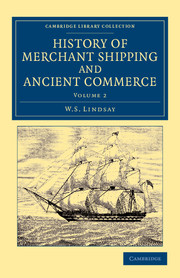
History of Merchant Shipping and Ancient Commerce
-
- Published online:
- 05 June 2014
- Print publication:
- 28 February 2013
- First published in:
- 1874
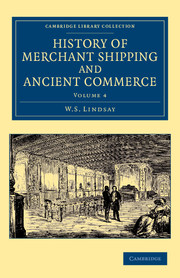
History of Merchant Shipping and Ancient Commerce
-
- Published online:
- 05 June 2014
- Print publication:
- 28 February 2013
- First published in:
- 1876
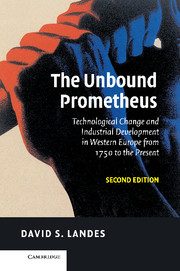
The Unbound Prometheus
- Technological Change and Industrial Development in Western Europe from 1750 to the Present
-
- Published online:
- 05 June 2014
- Print publication:
- 26 June 2003
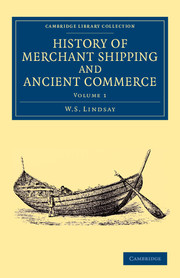
History of Merchant Shipping and Ancient Commerce
-
- Published online:
- 05 June 2014
- Print publication:
- 28 February 2013
- First published in:
- 1874
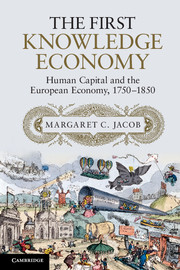
The First Knowledge Economy
- Human Capital and the European Economy, 1750–1850
-
- Published online:
- 05 June 2014
- Print publication:
- 09 January 2014
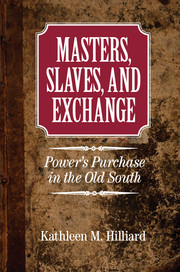
Masters, Slaves, and Exchange
- Power's Purchase in the Old South
-
- Published online:
- 05 June 2014
- Print publication:
- 23 December 2013
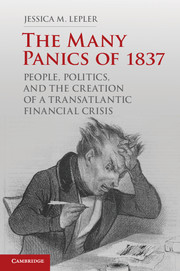
The Many Panics of 1837
- People, Politics, and the Creation of a Transatlantic Financial Crisis
-
- Published online:
- 05 June 2014
- Print publication:
- 16 September 2013
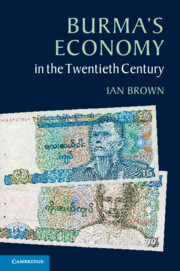
Burma's Economy in the Twentieth Century
-
- Published online:
- 05 June 2014
- Print publication:
- 07 November 2013
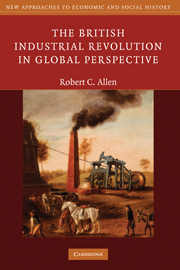
The British Industrial Revolution in Global Perspective
-
- Published online:
- 05 June 2014
- Print publication:
- 09 April 2009

Materials for a History of the Reign of Henry VII
- From Original Documents Preserved in the Public Record Office
-
- Published online:
- 05 June 2014
- Print publication:
- 15 November 2012
- First published in:
- 1873
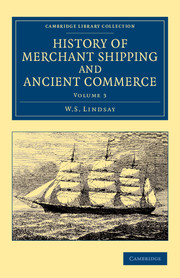
History of Merchant Shipping and Ancient Commerce
-
- Published online:
- 05 June 2014
- Print publication:
- 28 February 2013
- First published in:
- 1876
LEY DE ZIPF Y DE GIBRAT PARA COLOMBIA Y SUS REGIONES: 1835-2005*
-
- Journal:
- Revista de Historia Economica - Journal of Iberian and Latin American Economic History / Volume 32 / Issue 2 / September 2014
- Published online by Cambridge University Press:
- 23 May 2014, pp. 247-286
- Print publication:
- September 2014
-
- Article
- Export citation
SWEET BUSINESS: QUANTIFYING THE VALUE ADDED IN THE BRITISH COLONIAL SUGAR TRADE IN THE 18TH CENTURY*
-
- Journal:
- Revista de Historia Economica - Journal of Iberian and Latin American Economic History / Volume 32 / Issue 2 / September 2014
- Published online by Cambridge University Press:
- 20 May 2014, pp. 223-245
- Print publication:
- September 2014
-
- Article
- Export citation
Glossary
-
- Book:
- Creating Global Opportunities
- Published online:
- 05 April 2014
- Print publication:
- 08 May 2014, pp xxvii-xxx
-
- Chapter
- Export citation
